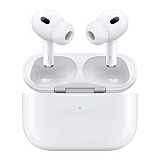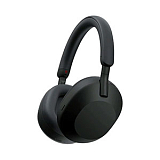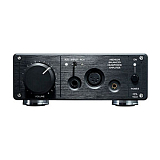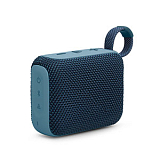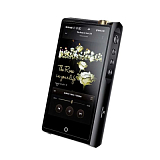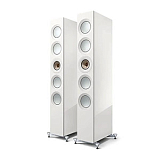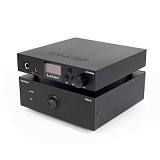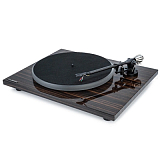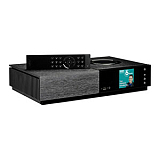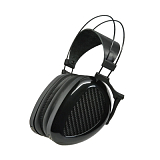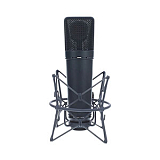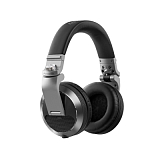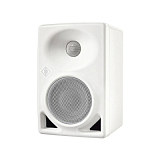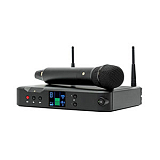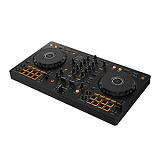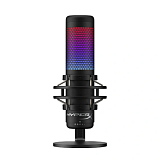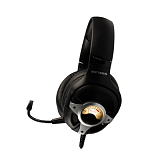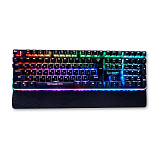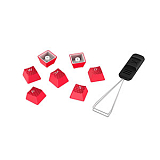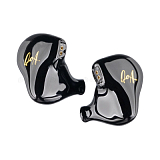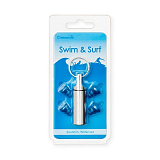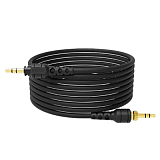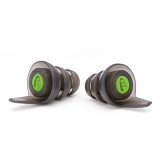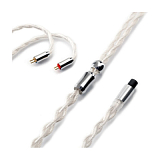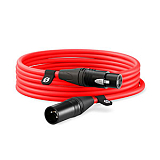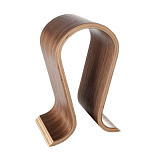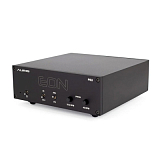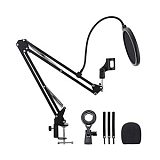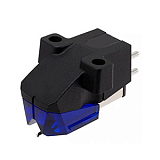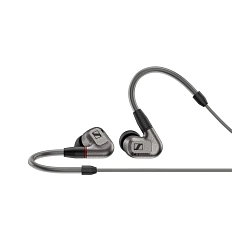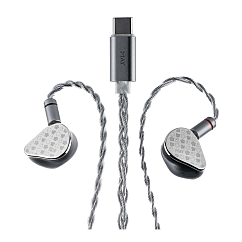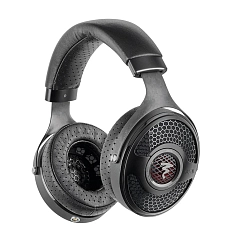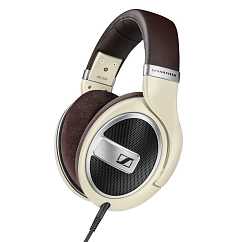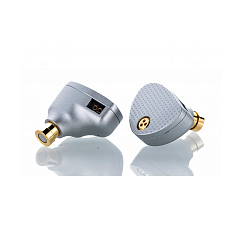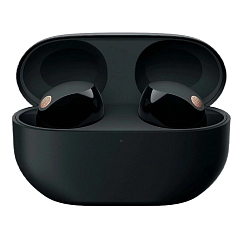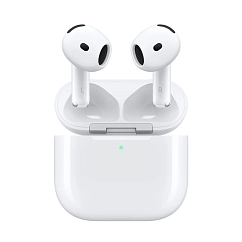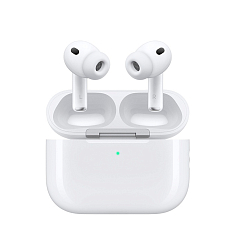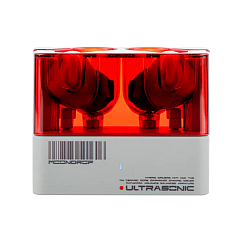Which Headphones to Choose: Wireless or Wired?
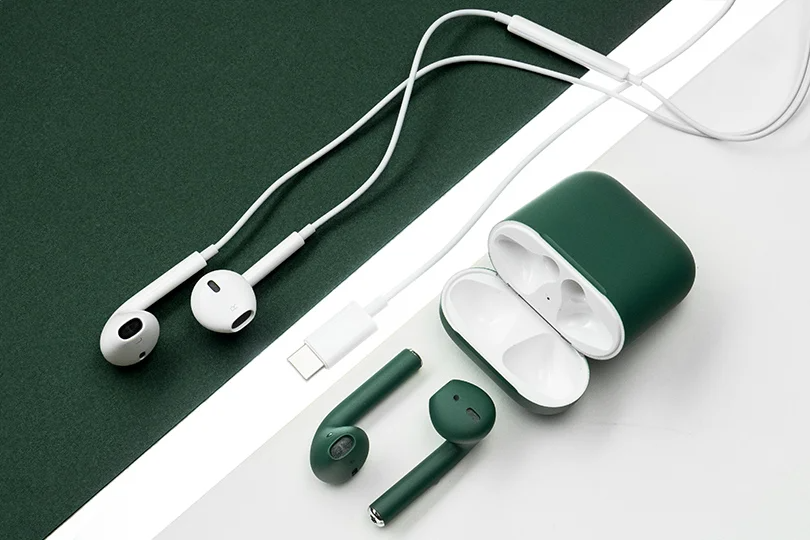
Contents:
The debate between fans of wired and wireless headphones remains relevant. Some people prioritize the convenience of wireless headphones and active noise cancellation, while others value sound quality and reliability. It's important to note that in practice, the advantages of each type depend on the manufacturer and model.
Let's take an objective look at this debate. We'll discuss the characteristics of wired and wireless headphones and outline their pros and cons.
Wired Headphones
When you examine their construction, you'll find diaphragms, coils, magnets, housings, ear pads, and a cable with a plug at the end. A "classic" wired model is entirely analog. It doesn't require battery power or additional sound processing to function. All it needs is a signal carried through a wire from a smartphone, portable player, laptop, or other devices. Essentially, they are portable speakers for your ears.
Headphones:
From an audiophile's perspective, only a wired design can deliver truly "honest" and "full-bodied" sound.
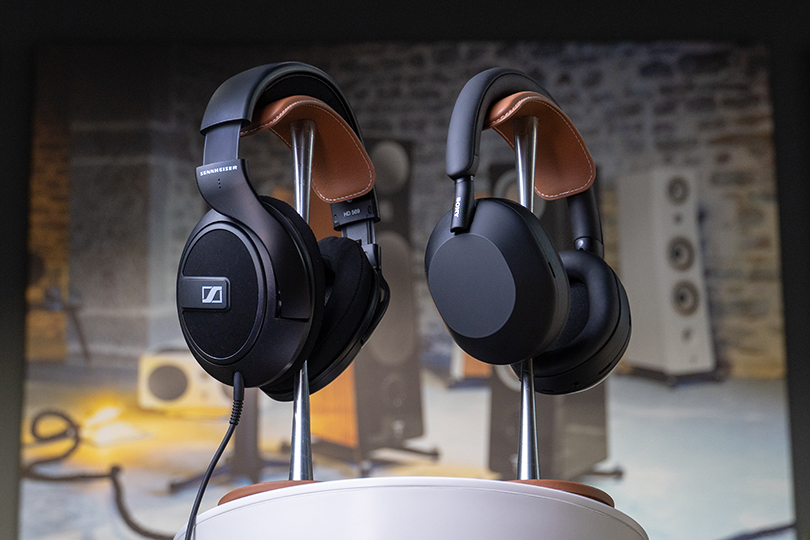
5 Advantages: Quality Above All
- Superior Sound Quality: A great pair of wireless headphones can sound better than a mediocre pair of wired ones. However, when comparing wired and wireless models of similar price, wired ones usually come out on top. Although wireless audio quality has improved significantly thanks to increasingly efficient Bluetooth codecs, DACs, and amplifiers, it still lags behind wired connections. Audio transmitted wirelessly is compressed, and some important information can be lost (depending on the codecs).
- Reliability: Due to the relative simplicity of their design, lack of batteries, and absence of internal electronics, wired models are more reliable. The conservative wired connection allows them to be used with most devices, and if your smartphone lacks a 3.5mm jack, an adapter can help.
- No Power Required: In addition to a theoretically unlimited lifespan, the advantage of not needing batteries is that you never have to worry about wired models running out of power. While the battery life of wireless headphones is also at unprecedented levels, wired headphones are always ready to go.
- No Latency: When watching movies or gaming, it's important that the sound doesn't lag behind the picture. A wired connection offers virtually zero audio latency, which is why professional gaming headsets tend to stick with cables. Bluetooth, however, is also making strides, offering solutions with latency that is imperceptible to our ears and eyes.
- Upgrade Potential: Since wired headphones don't have complex internal DACs, amplifiers, and sound processors, there's room for experimentation and upgrades. Connect an external DAC/amplifier or player, and you'll notice a difference in the sound of your familiar headphones.
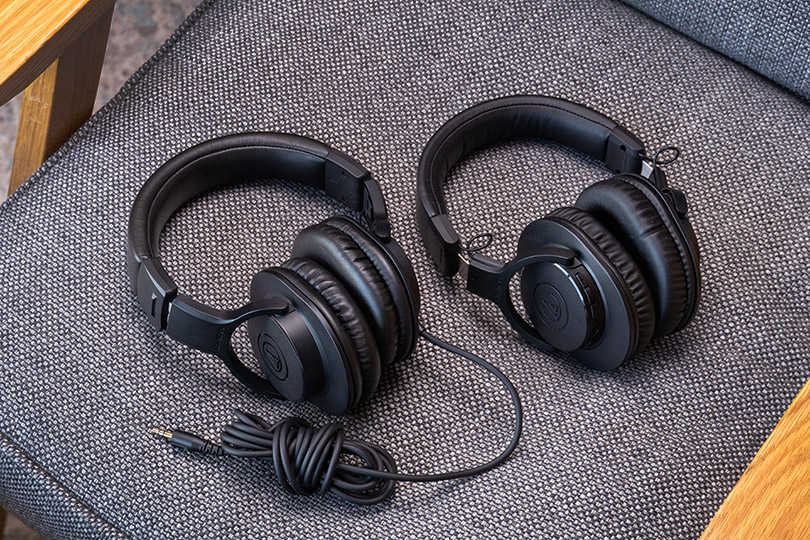
4 Disadvantages: Lack of Modern Conveniences
- Limited Portability: One of the main drawbacks of wired models is, of course, the cable. It can restrict your movements when you're out and about, it can get damaged, and it even adds weight to your headphones. Additionally, with fewer 3.5mm ports on modern audio devices, you're limited in which portable devices you can use them with without an adapter.
- Requires an Adapter: Since most smartphone brands have abandoned the headphone jack, you'll need an adapter (e.g., 3.5mm to USB-C) for compatibility. This adds another item you need to carry with you.
- No Noise Cancellation: These days, it's rare to find a wired pair with active noise cancellation. ANC technology has become almost exclusively a feature of wireless headphones. With wired models, you must rely on the noise isolation provided by quality ear pads.
- Limited Water Resistance: Water and dust resistance standards are more commonly found in wireless models. This is because wired headphones are often "homebodies" and rarely leave the house. For wireless models, it's crucial to protect delicate electronics from moisture, making them better suited for workouts and outdoor use in any weather.
Wireless Headphones
Wireless headphones do not require a direct connection to a sound source with a cable. Most wireless headphones and audio devices exchange music signals using Bluetooth technology, which operates in the shortwave radio band, typically 2.4 GHz. Wireless headphones are much more technically complex than wired ones. Here's a general overview of how they work.
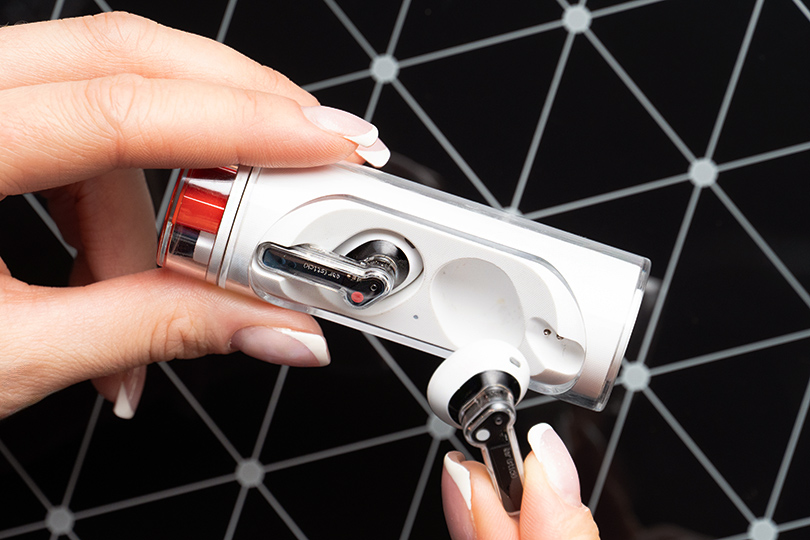
A sound source, such as a smartphone, sends music "wrapped" in an audio codec to the wireless headphones via Bluetooth. The digital-to-analog converter (DAC) in the headphones converts the digital signal (zeros and ones) into an analog wave, which is played through speakers and other drivers. The sound is also amplified and processed. This type of device requires a built-in battery to operate. As you can see, music takes a complex path before reaching the listener. Along the way, the sound can lose or gain certain characteristics.
It's worth noting that there are fully wireless models, such as True Wireless, as well as headphones connected by a headband. If you're looking at full-size or on-ear wireless models, they likely have the option for a wired analog connection, which is handy if the battery dies or you need to connect to a gaming console.
5 Advantages: Freedom in Everything
- Portability: The absence of wires provides maximum freedom of movement. This makes wireless headphones ideal for sports, as well as for listening to music and taking calls in any setting. Consider the compact Anker Soundcore Sleep A10, which are suitable not only for listening to music but also for sleeping.
- Improved Sound Quality: With each new generation of Bluetooth and codecs, sound quality improves. There are already several codecs on the market, such as LDAC, that allow for lossless music transmission. Reliability and connection stability are also increasing. Wireless headphones are now approaching the quality and realism of wired models. We believe that this gap will soon disappear entirely. Notable examples include the Noble Audio FoKus Triumph, which features six codecs, including high-quality AptX Adaptive and LDAC.
- Noise Cancellation: Active noise cancellation is increasingly common in wireless headphones and earbuds across all price ranges. This is no longer an exclusive feature of premium models. With ANC technology disappearing from wired models, wireless headphones gain an advantage, solidifying their image as the best travel companion. The Sony WH-1000XM4 and Sony WH-1000XM5 are leaders in ANC effectiveness.
- Universal Compatibility: Most modern audio and video devices are now equipped with Bluetooth (3.5mm ports are becoming rarer). This means that wireless headphones are natively compatible with a wide range of devices, from smartphones and speakers to TVs and laptops.
- Weather Protection: The housings of most wireless models are protected from moisture, and some from dust as well. This means they can withstand rain or intense workouts outdoors. For example, the Noble Audio Falcon Max is protected against water and dust according to the IP54 standard.
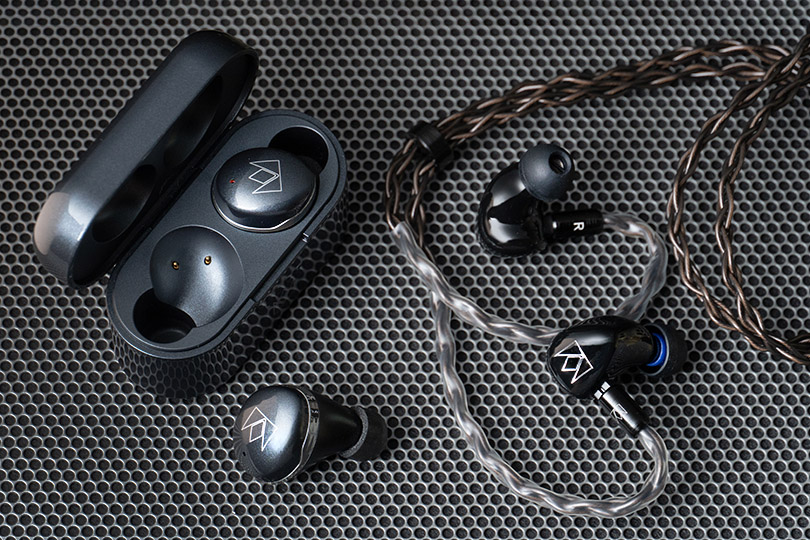
Disadvantages
- Dependence on Battery: This drawback is diminishing each year as the battery life of TWS and full-size models now exceeds 24 hours of playback. We don't always monitor the remaining battery level, so the headphones may die at the most inconvenient moment, such as during an important call. In this case, quick charging can help. For instance, with the Noble Audio FoKus Mystique, 15 minutes in the case provides another hour of listening.
- Potential Interference: Wireless headphones use radio frequencies to transmit audio signals, which can sometimes be disrupted by other electronic devices. This can degrade sound quality or cause connection issues.
Headphones:
Conclusion
Both wireless and wired headphones have their pros and cons. Wireless is taking up an increasingly large share of portable audio. When choosing, you should consider your needs and lifestyle. For home use, comfortable wired full-size models might be the best option, while compact TWS headphones are better suited for walks and workouts.
Rely on your own listening experience and preferences, and Dr.Head will help you find the best audio. We look forward to seeing you at our stores in Dubai, where you can listen to all the audio products we offer.
